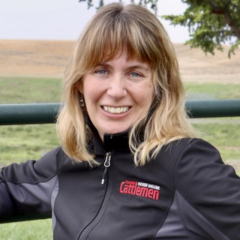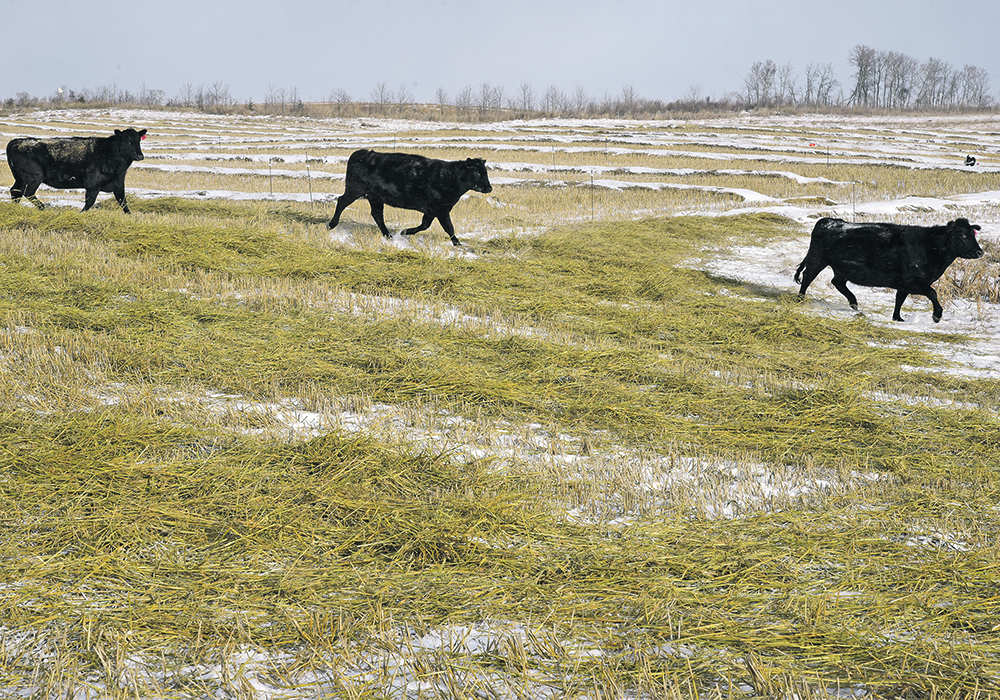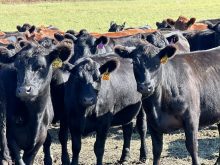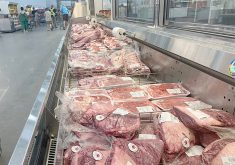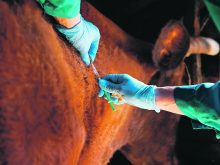The Certified Sustainable Beef Framework was formed three years later to provide credible assurances for consumers
Glacier FarmMedia – It’s been 10 years since the Canadian Roundtable for Sustainable Beef was founded to measure and recognize Canada’s leadership in sustainability.
The Certified Sustainable Beef Framework, known as CRSB Certified, was created in 2017 to recognize sustainable practices and provide credible assurances to consumers regarding the production, processing and sourcing of beef through certified supply chains in Canada.
The program was developed in collaboration with stakeholders across the supply chain and beyond, including input from producers. Since 2017, the program has grown significantly.
Read Also

House ag committee to undertake several studies
The House of Commons standing agriculture committee has set its agenda for the coming months. Members began the fall sitting with a two-hour update on international trade
There are now more than 1,350 CRSB Certified producers, which means that approximately 20 per cent of Canadian cattle spend time under the management of a CRSB Certified operation.
Beef producers and processors are certified against the standards for sustainable beef production and processing set by the CRSB.
Certification is done based on a five-year cycle consisting of an initial on-site audit, with records assessment and self-declarations in intervening years. Cattle and beef are tracked according to CRSB’s chain of custody requirements, using Canada’s RFID traceability system.
Retailers, restaurants and food service distributors can source beef that meets CRSB requirements and market qualifying beef with a “CRSB Certified” logo and claim.
Program participants cite various motivations for becoming and remaining certified, such as supporting programs that promote beneficial practices, increasing credibility to build consumer trust, measuring success and identifying gaps, showing pride in the business and self-education.
“When you know better, you do better,” says Andrea Stroeve-Sawa of Shipwheel Cattle Feeders at Taber, Alta.
Partner organizations also offer financial incentives to certified producers.
Since 2018, Cargill has offered a per head (approximately $18-$20) “qualifying cattle credit” to CRSB Certified producers for cattle that flow through the supply chain.
In 2023 and 2024, Cargill also partnered with CRSB to provide a “recognition credit” for CRSB Certified producers, over and above the existing qualifying cattle credits and regardless of whether their cattle were ultimately sold to Cargill.
This ensured that all CRSB Certified operations received a minimum $400 in total annual credit payments as part of the framework. Both incentives are funded by Cargill customers who partner in the program.
Since 2022, Farm Credit Canada has offered its own Sustainability Incentive Program. Customers who are CRSB Certified can receive the incentive, regardless of what else is occurring through the value chain.
Last year, there were 506 successful applicants for incentives across all FCC programs.
“While there may be variation in payments from year to year, over the last four and a half years we have benefited by about $5,800 through both Cargill and FCC incentives,” says Tyler Fulton of Tyton Farms at Birtle, Man.
He estimates Cargill and FCC each contributed about half to that total.
Scott Gerbrandt, who operates S&R Gerbrandt Farms with his wife, Robyn, near Swift Current, Sask., says in addition to the Cargill and FCC incentives, they’ve accessed programs tied to VBP+, such as rebates for audit costs, handling systems, squeeze chutes and RFID readers.
“Incentives being offered by CRSB partners are encouraging, and I hope others will help follow suit to reward producers for the important work they are doing,” says Stroeve-Sawa.
“These incentives help leverage improvements, and make farmers and ranchers feel like their dedication is appreciated.
“Companies who are supporting us as producers, either through these programs, or as CRSB members, contribute to my loyalty.”
Certification is done by third-parties approved by the CRSB.
Participants can choose the certification body based on what they think is best for their operation. There are three options:
• Verified Beef Production Plus
• Ontario Corn Fed Beef Quality Assurance/ CRSB Program (feedlot operations in Ontario)
• Where Food Comes From Inc.
FCC customers with active lending in good standing who hold a current CRSB certification at the time of application are eligible for the FCC incentive program. Producers can apply online at fcc.ca/sustainabilityprograms.
Once the application is submitted, the team verifies customer information and status. Once participating producers are verified, the team will calculate an incentive payment to a maximum of $2,000 in one calendar year.
In addition to CRSB, FCC has programs with McCain, Cargill, Dairy Farmers of Canada, Starbucks, Ducks Unlimited Canada, PepsiCo and Fertilizer Canada’s 4R Nutrient Stewardship.
While the word “audit” can sound daunting, producers who’ve completed the process have found positives.
“I have been through two audits so far, and to me they feel like you are showing a knowledgeable producer around your farm,” says Fulton.
He sees it as an opportunity to explain why they do things the way they do and get feedback on how to do things better.
“I really felt like the suggestions from the auditor were common sense, but were things that we had overlooked. Sometimes it takes a fresh set of eyes to identify risks that can be mitigated.”
Gerbrandt has also completed two audits. He says preparation mostly involved compiling documents before the auditor arrived to prove such things as withdrawal times and treatment methods. The auditor shared any needed corrective actions to improve their operation.
“Our auditors have been fellow beef producers. We have come out of both audits with knowledge and suggestions for improvement that we didn’t have before.”
Retail and food service partners in the program say there is demand for beef raised on CRSB Certified farms and ranches. Processors, distributors, retailers and restaurants have made commitments to CRSB Certified beef sourcing and are marketing it to Canadian consumers.
“Our retail and food service customers are increasingly asking for CRSB Certified beef to meet consumer preferences and their own corporate sustainability goals,” says Kristine Tapley, Cargill sustainability customer engagement manager.
“That demand exceeds the current number of qualifying cattle arriving at our facilities, proving there’s an industry need to expand the supply chain of CRSB Certified cattle as we sustainably feed a growing population.”
In October 2023, the Canadian Cattle Identification Agency became a single verifier for live cattle chain of custody for the program outside of Quebec. As part of this, anyone with Canadian Livestock Tracking System (CLTS) accounts are able to see the “CRSB Certified” status of their cattle’s identification as they move through the supply chain.
Producers must consent to share information with CRSB in the CLTS account, register the RFID tags, age-verify animals in CLTS and record cattle movements.
All events (birthdates and move-ins) must be submitted into the CLTS before:
• July 15, for Jan. 1–June 30 events
• Jan. 15, for July 1–Dec. 31 events
This enables operators down the supply chain to search by tag number for qualifying animals.
Stroeve-Sawa, Gerbrandt and Fulton all noted that CRSB Certification was built by beef producers in response to societal demand.
“This is our way to prove what we are doing, and we need to be able to show it,” says Stroeve-Sawa, whose operation was part of the original Verified Beef Production program.
She says the program enables beef producers to define the standards of sustainable production.
“CRSB has a great way of developing flexible outcomes to meet the standards based on what works best for each individual farm or ranch.”
Gerbrandt says consumers have proven they value certified products in grocery stores and restaurants.
“Consumer demand drives supply chain demand. If we don’t get behind these programs that are developed by us, then there will be programs developed for us. Between the payments per head and incentive programs, there’s great opportunity for producers to come out ahead.”
Fulton also sees social and financial market demand for information on how food is produced.
“CRSB and the CRSB Certified program is our response to those demands. It is a tool that covers many topics of interest, is useful for all, and meets many of those programs’ criteria.”



